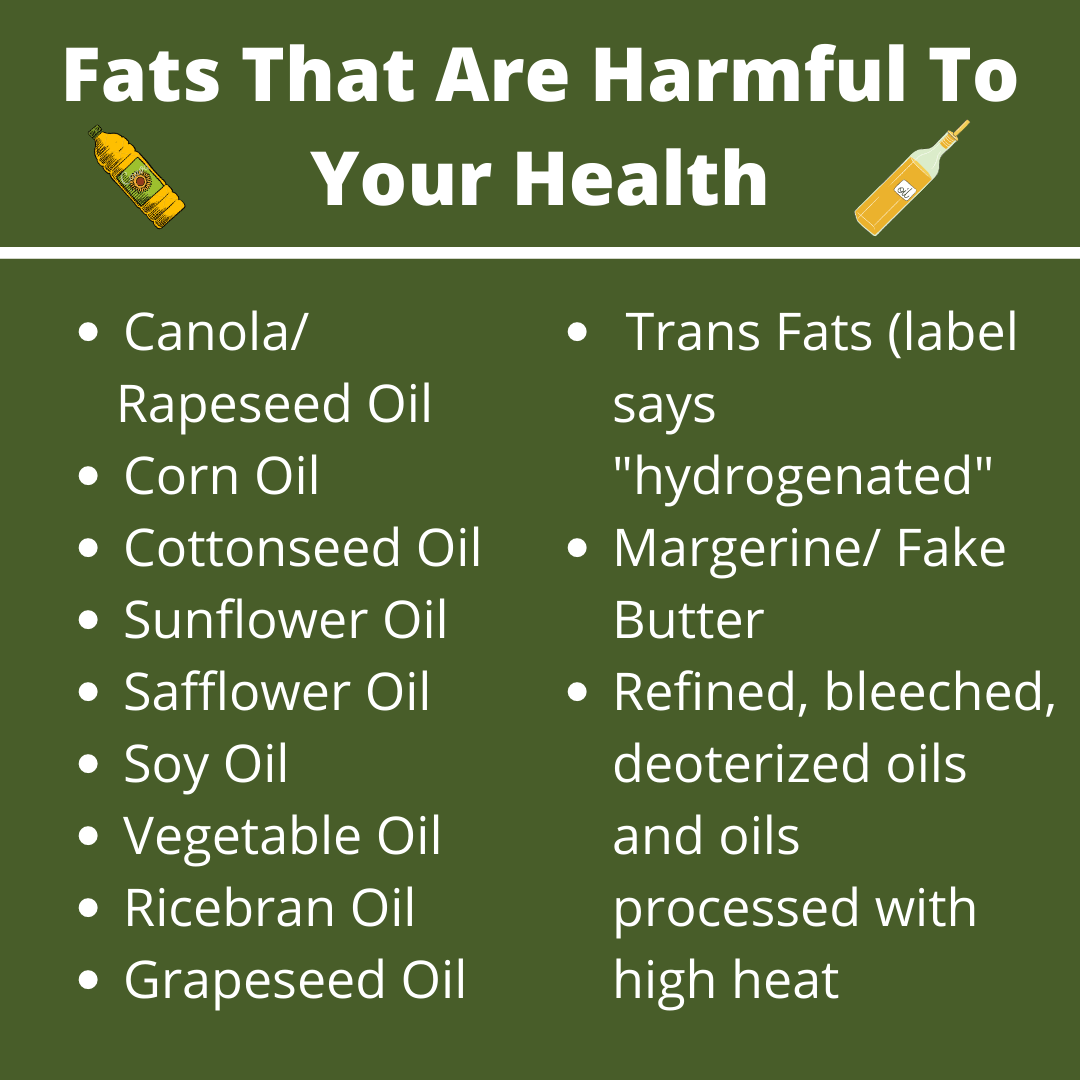Overcome Your Gut + Digestive Issues With Ancestral Nutrition
The Real Bad Fats

Current research indicates that vegetable/seed oils, sugar, and metabolic disfunction are likely the cause of heart disease. Not saturated fat and cholesterol! In this article, I’m going to focus on how vegetable/seed oils can lead to heart disease. (For examples of these harmful oils see the picture above).
These fats are harmful because:
- Their chemical structure increases the risk of oxidation and the creation of free radicals. (1, 2)
- They can lead to atherosclerosis (clogged arteries), heart disease, heart attacks, and strokes. (1, 2)
- They are typically processed with high heat and chemicals which further increases the oxidation and risk of all the arterial and heart related diseases previously mentioned. (1, 2)
Vegetable/seed oils are composed mostly of polyunsaturated fatty acids (PUFAS), which are more susceptible to oxidation due to their chemical structure. They have multiple double bonds which allows oxygen to squeeze in and oxidize the fat. Oxidation is a problem because it creates free radicals, which are molecules with an unpaired valence electron. This makes them very unstable and destructive to surrounding tissues. (1, 2)
Free radicals can break apart lipoproteins (the vessels that carry fat in the blood stream) causing fat to leak out and clog your arteries. Once loose in the blood stream, free radicals can also deteriorate arterial walls. (1, 2)
If the fat builds up enough to fully block the artery or if an arterial wall is broken by free radicals and a blood clot blocks off the artery (as seen in the picture of a complicated lesion below), blood is prevented from reaching the heart or brain resulting in a heart attack (if blood can’t get to the heart) or a stroke (if blood can’t get to the brain). (1, 2)
Stages of Atherosclerosis:
 |
In addition to the chemical structure, the processing of these oils makes them even more susceptible to oxidation. In many cases high heat and/or chemicals are used to extract oils from seeds or plants. Canola oil is typically bleached and deodorized to remove its naturally fowl odor. These types of processing increase oxidation and free radical formation. (1, 2)
Now that you know which fats to avoid, you are probably wondering which fats you should eat. And you can read about that in my article Which Fats Are Healthy.
Works Cited
1. Shanahan, Catherine. Deep Nutrition. New York: Flat Iron Books. 2016. Print.
2. Shanahan, Catherine. The Fatburn Fix. Flatiron Books, March 2020, NY.

